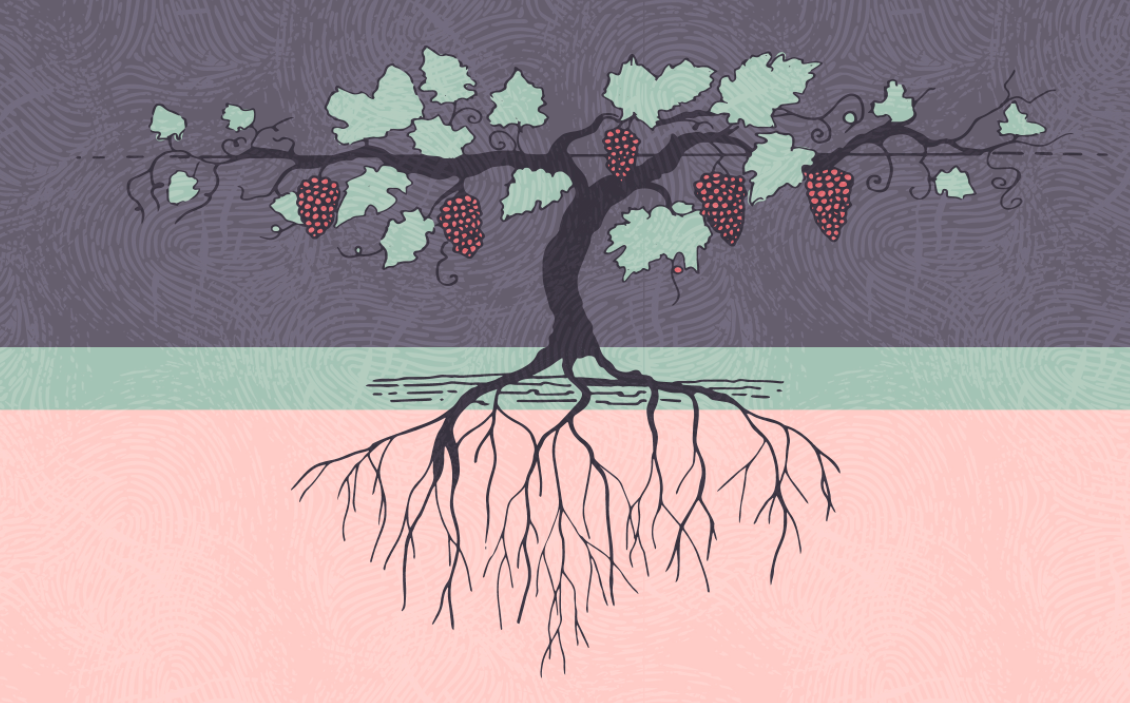This post originally appeared on redthumbwine.com and was written by Dave Schavone.
One of our standards is that we produce dry farm wines. Dry farming wines means our grapes are grown without irrigation. This is a fairly common standard in natural wine, and to me it is the one that best highlights how regenerative viticulture has the added benefit of yielding a better product.
What does concentration mean in terms of wine?
Have you ever tried a mass produced, conventionally grown strawberry and wondered why it doesn’t taste like anything, or had a perfectly ripe strawberry at the farmer’s market that absolutely burst with flavor? The difference is concentration. “Concentration,” a term you hear a lot when people talk about wine, generally means how much flavor is packed into each sip. We’ve all tried wines that are less concentrated, where there’s a thin-ness, or a watery quality to the wine. Many mass-produced Pinot Noirs suffer from this. No one likes thin, flavorless wine.
Commercial methods for achieving wine concentration
There are various ways to achieve a balanced concentration, for example:
Wait and harvest grapes that are very ripe. The last stages of fruit ripening are all about sugar development, and that sugar yields rich, full wines (think: jammy California Zinfandel). There are risks, however, with letting fruit ripen on the vine. Mold and pests become greater threats as the brix, or sugar content, increases. Many winemakers will cheat, using various additives to mimic the effect of riper fruit without taking on the risk of ripening. The large commercial growers and winemakers are much more concerned with control and consistency than anything else.
Dry farming wine for ideal concentration
Another way to achieve the right concentration is to dry farm, which is to rely only on rainfall and the natural water table for the vineyard’s needs, eschewing irrigation. The downside to dry farming is that your vineyards produce less fruit per acre, and you have less control over the growing cycle. However, the fruit produced in dry farmed vineyards is more concentrated and also more representative of the place and vintage. When comparing vintages from the same location, just a few inches of rainfall can make a world of difference in dry farm wines. So dry farming produces more interesting wines that don’t require manipulation in the winemaking process.
Environmental benefits of dry farming
All of that said, the best reasons to dry farm are ecological. Studies show that organic and especially biodynamic farming help trap carbon in the soil, carbon that would otherwise contribute to climate change. The amount of additional carbon sequestration needed to make an impact is minimal, just .04%, which is very achievable. The 4p1000.org movement has much more information on this, and it is another reason to insist on organically grown produce.
Water is our most valuable natural resource, and in the western world we take it for granted far too often. We turn on the tap, and a drinkable glass of water flows out. This may be the single clearest example of first world privilege: that we don’t even stop to think about something that is literally life or death for as many as 1.8 billion people. The recent news that water futures will begin trading on the commodities exchange, alongside oil and natural gas and, of course, FCOJ-A (can you imagine a bunch of rich guys trading water like this?), is incredibly troubling. To take this resource for granted is a very slippery slope.





